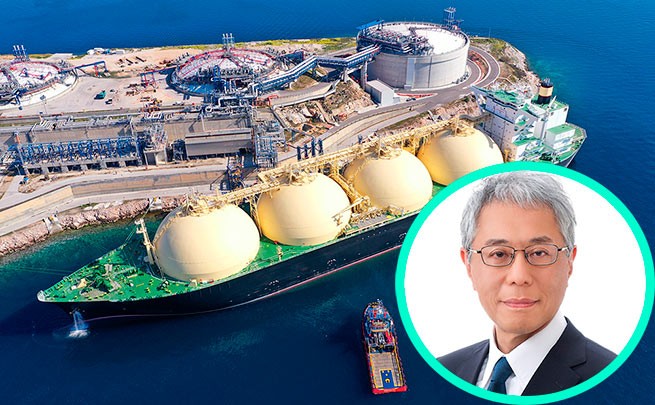Global demand for liquefied natural gas is likely to increase will be stronger than expectedand the projects under construction are not enough to satisfy it, says one of Japan’s leading fuel traders.
“The announced projects around the world still do not meet the supply levels that are needed if we look at the energy transition that will take several decades,” said Kenichi Hori, chairman of Japanese trading house Mitsui & Co. in an interview in Tokyo last week.
Hori echoed the sentiments of major exporters such as Chevron Corp. and Shell Plc, saying natural gas will play a long-term role in the energy transition. His comments come as competition for LNG intensifies following Russia’s invasion of Ukraine, as Europe seeks to limit its dependence on Moscow for gas supplies and developing countries aim to secure long-term deals to avoid future shortages.
According to Bloomberg, Mitsui and other major trading houses in Japan are actively involved in oil, gas and coal. Berkshire Hathaway Inc. Warren Buffett earlier this year increased its stake in these companies, which posted strong gains thanks to high commodity prices and a weak yen.
Countries and companies are looking to LNG as a cleaner fossil fuel that could cut emissions, but supply is expected to be limited until around 2026, when new projects are scheduled to come online. BloombergNEF forecasts that global LNG demand will grow 3.4% annually between 2022 and 2026 to reach 444 million metric tons.
Ensuring diversity in supply sources will likely prove vital to Japan’s energy security, Hori said. “We have projects in the US, the Middle East and Africa,” he said.
Asked whether Mitsui was interested in signing a contract with Qatar, which is seeking buyers for its vastly expanding production, Hori said the Middle Eastern state was an “important source of LNG” as Japan seeks further diversification.
Along with gas and LNG, it is important for Mitsui to have “multiple pathways” for the energy transition, including renewables, ammonia and hydrogen, Hori stressed. The company recently announced a 960 billion yen ($6.4 billion) investment in an offshore wind project off the east coast of Taiwan and is exploring opportunities in electromethanol, a synthetic ingredient made from hydrogen and carbon emissions.
“All of these projects will shape the future of our portfolio as we transition from a traditional energy business to a low-carbon era,” he said.







More Stories
D. Sariyannis: “We expect African dust in mid-May”
Dust from the Sahara: first results of analysis of chemical components
Lyrid meteor shower, make a wish on a shooting star